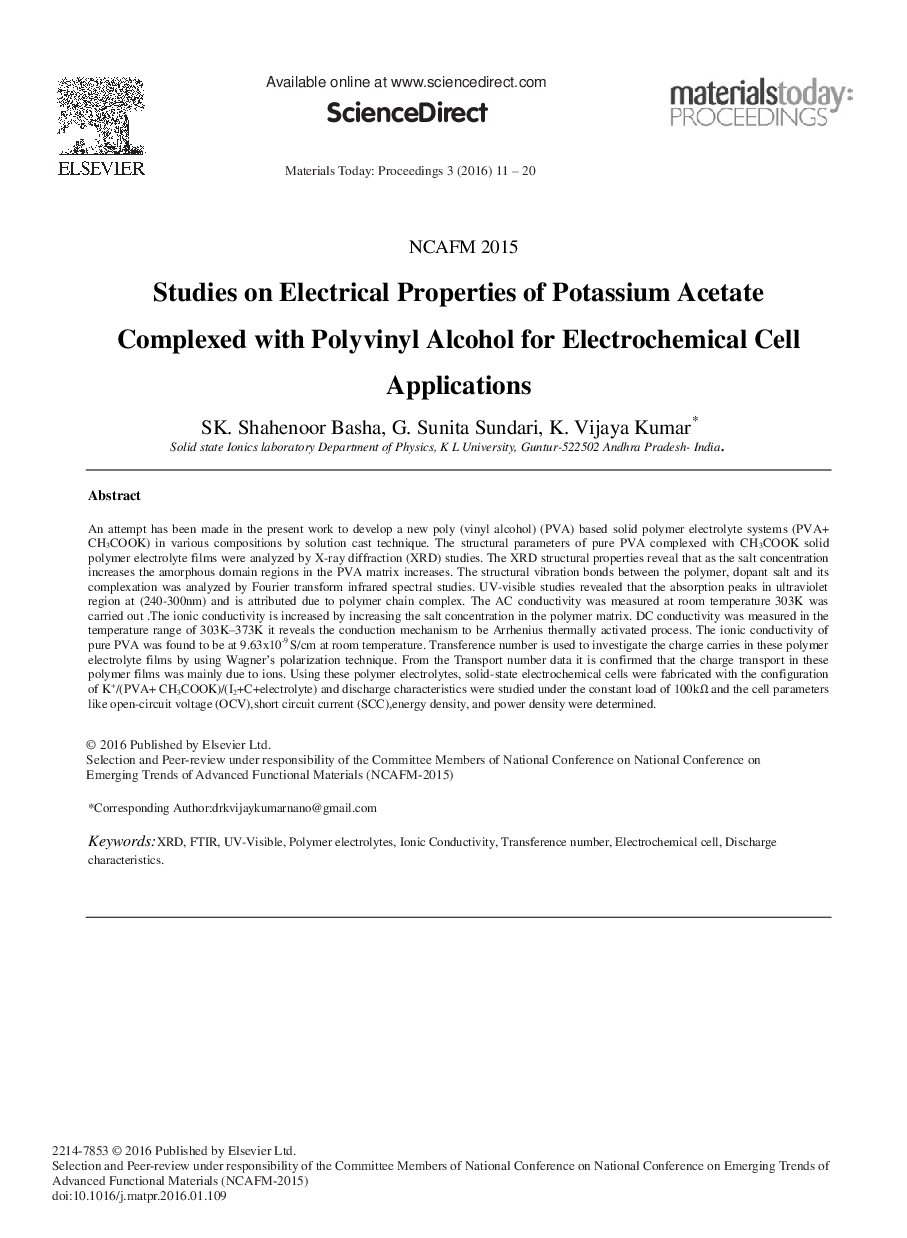| Article ID | Journal | Published Year | Pages | File Type |
|---|---|---|---|---|
| 1630938 | Materials Today: Proceedings | 2016 | 10 Pages |
An attempt has been made in the present work to develop a new poly (vinyl alcohol) (PVA) based solid polymer electrolyte systems (PVA+ CH3COOK) in various compositions by solution cast technique. The structural parameters of pure PVA complexed with CH3COOK solid polymer electrolyte films were analyzed by X-ray diffraction (XRD) studies. The XRD structural properties reveal that as the salt concentration increases the amorphous domain regions in the PVA matrix increases. The structural vibration bonds between the polymer, dopant salt and its complexation was analyzed by Fourier transform infrared spectral studies. UV-visible studies revealed that the absorption peaks in ultraviolet region at (240-300 nm) and is attributed due to polymer chain complex. The AC conductivity was measured at room temperature 303K was carried out .The ionic conductivity is increased by increasing the salt concentration in the polymer matrix. DC conductivity was measured in the temperature range of 303K–373K it reveals the conduction mechanism to be Arrhenius thermally activated process. The ionic conductivity of pure PVA was found to be at 9.63x10-9 S/cm at room temperature. Transference number is used to investigate the charge carries in these polymer electrolyte films by using Wagner's polarization technique. From the Transport number data it is confirmed that the charge transport in these polymer films was mainly due to ions. Using these polymer electrolytes, solid-state electrochemical cells were fabricated with the configuration of K+/(PVA+ CH3COOK)/(I2+C+electrolyte) and discharge characteristics were studied under the constant load of 100kΩ and the cell parameters like open-circuit voltage (OCV), short circuit current (SCC), energy density, and power density were determined.
